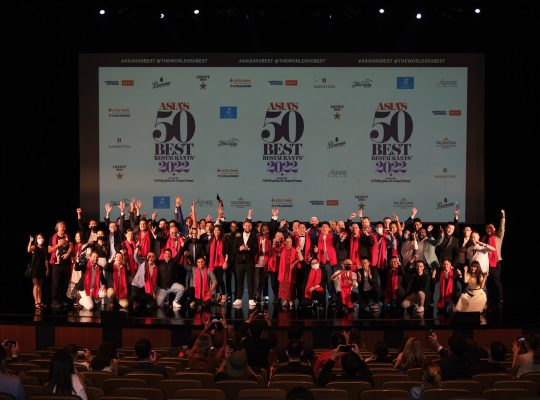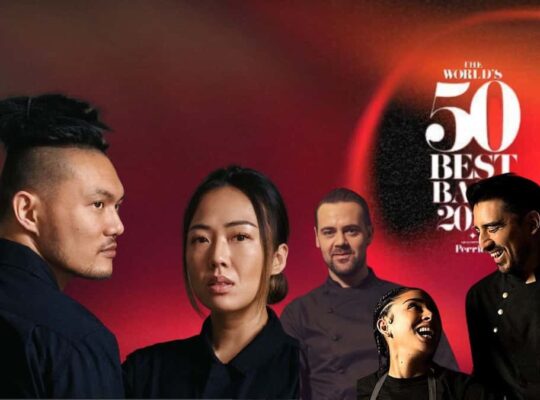
A special energy emerges when chefs of different cultures come together. And the three chefs at Six Senses Ninh Van Bay’s Culinary Sensation – International Culinary Week – Quang Dung, Julia Komp and Yusuf Kizilirmak – really are diverse.
Đọc bài viết bằng Tiếng Việt
Chef Julia Komp became Germany’s youngest ever female chef to be awarded a Michelin Star at the Schloss Loersfeld restaurant. Now, at Sahila – The Restaurant, which she opened in 2022 in Cologne, across the venue’s two concepts, she serves modern cuisine in the dining room and mezze at Yu*lia.
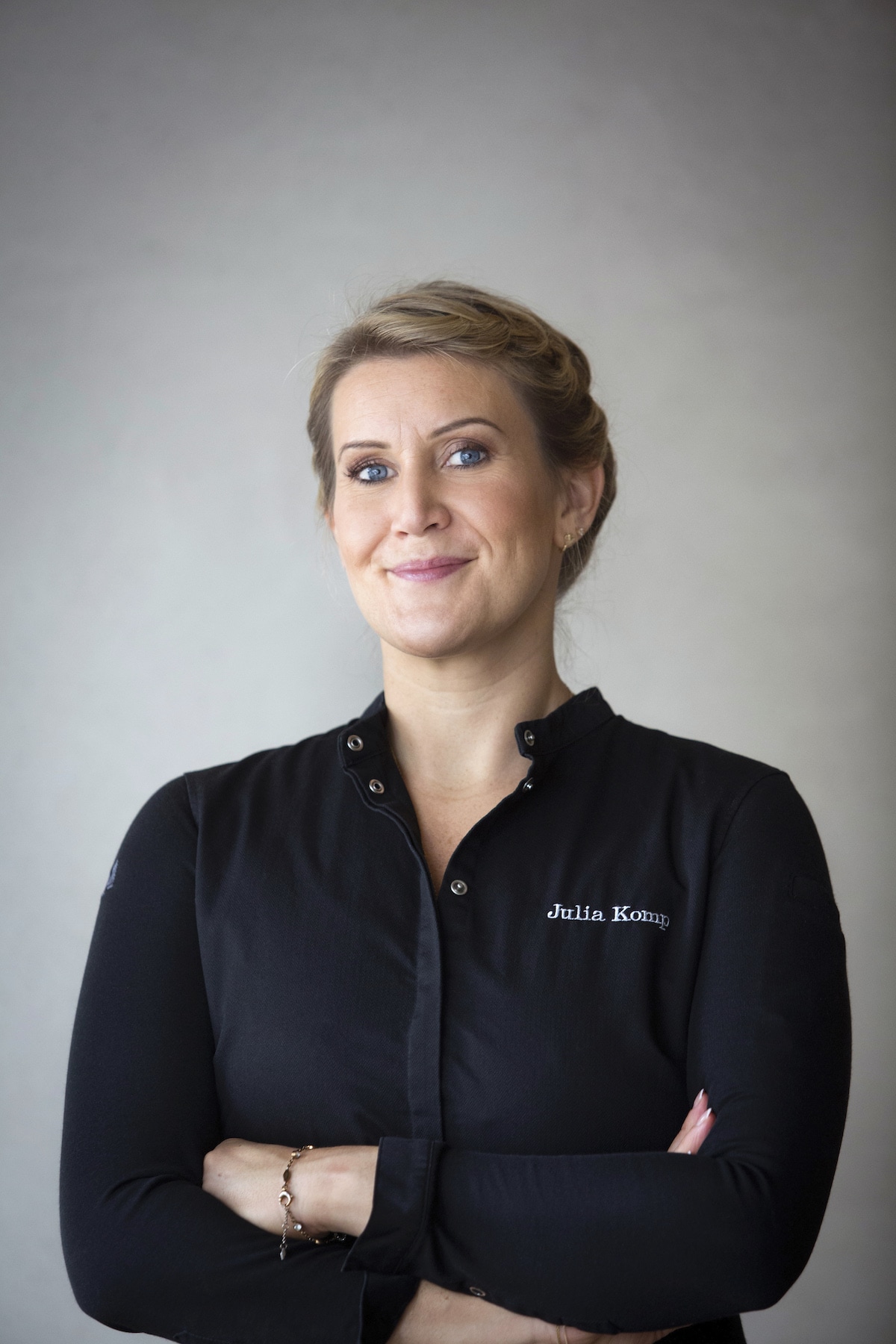
Yusuf Kizilirmak is executive chef at Six Senses Kocataş Mansions. While most of Six Senses’ 22 hotels around the world – in places like Uluwatu Bali, on the private island of Félicité, or on the Aegean coast – can be found in far-flung locations, like this one too that blends into the hillside of Nha Trang’s Ninh Van Bay, Six Senses Kocataş Mansions is in Istabul’s exclusive Sariyer district, and the two historic mansions that make up the property look out onto the Bosphorus Strait. Its restaurants draw both in-house guests and outside visitors to try pan-Latin cuisine at Toro Latin Gastro Bar and Turkish delicacies at Chef Erdal, all of which helped Six Senses Kocataş Mansions to a healthy mention in the Michelin Guide too.

Quang Dung’s Chapter Grill opened at the end of 2021 in Hanoi’s Old Quarter. Although he’d been involved in a number of restaurant projects, including opening the award-winning T.U.N.G Dining, Chapter Grill, as the name suggests, marked a personal career milestone with Quang Dung finally creating a concept and restaurant he could call his own. Built on the pillars of grilling and working with fire, primitiveness – with ingredients presented in their natural state – and seasonality, Chapter Grill has had an immediate impact on Hanoi’s dining scene, and Quang Dung, like many chefs in Vietnam, waits with interest as the Michelin Guide comes to Vietnam for the first time this June.
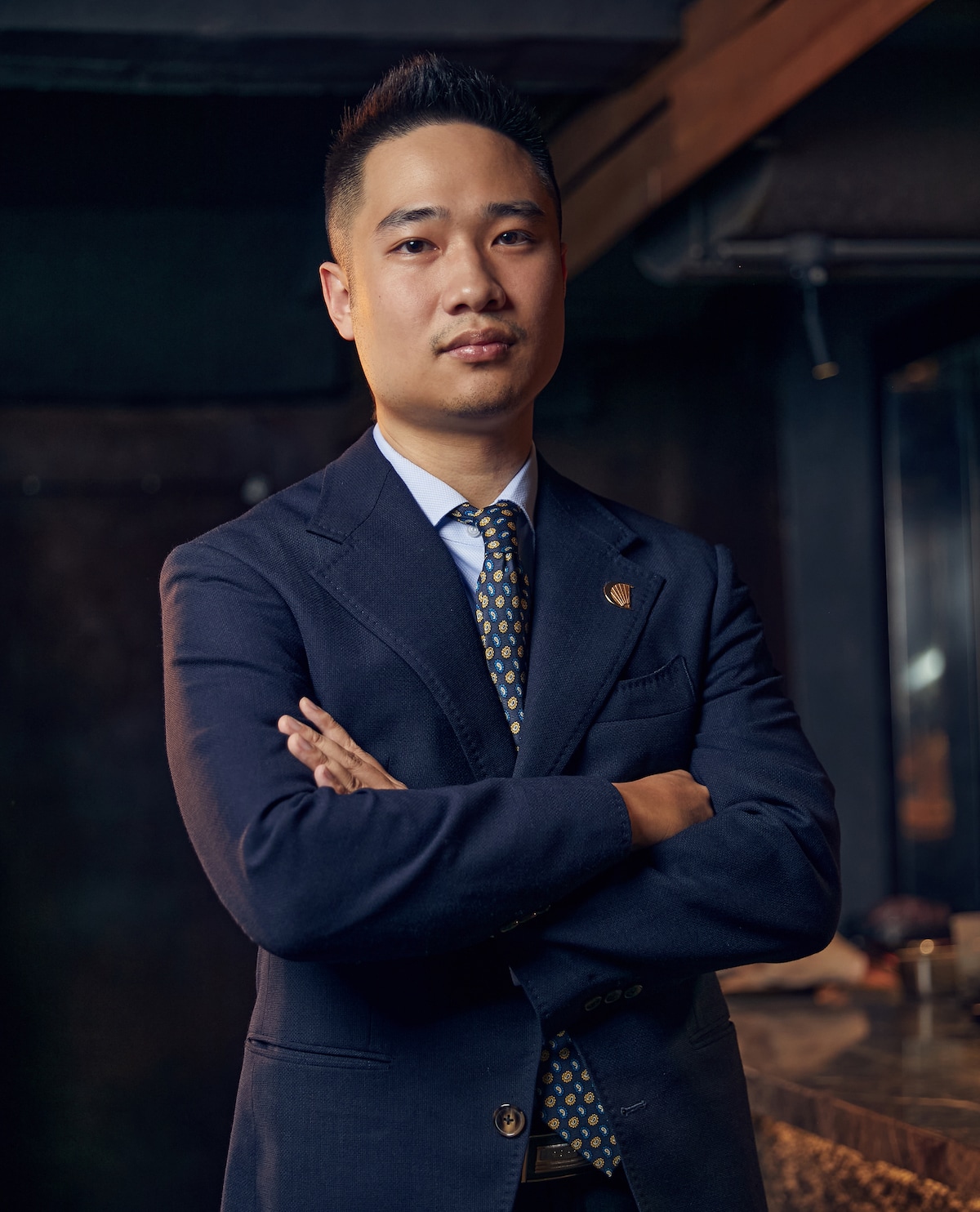
For Six Senses Ninh Van Bay’s Culinary Sensation – International Culinary Week, they’ve invited Julia, Yusuf, and Dung to join their Executive Chef Tim Goddard for a series of events including a plant-based six-hand dinner.
As Quang Dung is on home turf as the only Vietnamese chef at Six Senses Ninh Van Bay’s Culinary Sensation – International Culinary Week, we asked him to lead the conversation with Julia Komp and Yusuf Kizilirmak about their influences, experiences and expectations for the upcoming week.
Can you describe Vietnam in three words?
Yusuf Kizilirmak: This will be my first visit to Vietnam. As a chef, spring rolls are the first thing that comes to mind! At the Grand Hyatt Dubai where I was a commis chef, I would grab some for a quick bite, and if it wasn’t Vietnamese food, it would be Thai food, especially tom yum soup. But three adjectives would be: calm, green and enjoyable. I think that’s influenced by hearing about and seeing pictures of Six Senses Ninh Van Bay.
Julia Komp: Four years after getting the Michelin Star, I set off around the world. I love to travel, and I love to get influences from the world. The main motivation was…kimchi! How could I make kimchi and not go to Korea? I was traveling alone. And I was traveling for 14 months. So, I didn’t always have the greatest experience, particularly in Vietnam. But then I returned for an event featuring ten female chefs from around the world. And it was different. I was with people with the same mindset. We went to markets and tried different foods. So, in three words, now I’d say: fresh, light, and spicy.
Quang Dung: For me, Vietnam is home. It’s the opportunity, as a developing country. And it’s love – my feelings towards the ingredients and the culture of the country.
You’ve both chosen different paths as chefs – working either in hotels or restaurants – and so I wondered why you took that direction and what are the big differences?
Julia Komp: I never worked in hotels – I always wanted to focus on restaurant kitchens. However, my first work experience while I was still at school was in hotels…and I found it boring. There wasn’t such a strong communal atmosphere among the team. And food costs were so critical. So, I thought the right place for me was in restaurants.
Yusuf Kizilirmak: For me, moving into hotels happened naturally. And I like to be a hotel chef…but I’m not really a hotel chef. I don’t do banquets with 1,000 or 2,000 people each time. Here we only have 42 rooms so the scale is different to a big hotel. It’s also a destination place for people to come and eat with views of the Bosphorus. This was the first Six Senses opened in a city. And so we have one Latin-American restaurant, one Italian restaurant and one Turkish restaurant, and one Egyptian-style restaurant is coming. Added to that is a pastry kitchen.
Quang Dung: Like you, Julia, I worked briefly in hotels too – at the JW Marriott Hotel Hanoi in their French Grill around 2015 in the evenings and at the weekends. I lasted three months. To be honest, I loved the cooking. But it often felt like catering and not cooking.

You’ve both built formidable relationships as chefs. With all the publicity and attention that comes with it, how do you stay grounded?
Julia Komp: Until now I’ve done everything myself – including marketing like Facebook and e-newsletters. In addition to that, I have an olive oil business, and I work with companies like Lufthansa. Now, I realized that the most important thing is the restaurant and everything else has to be controlled.
Yusuf Kizilirmak: I’m definitely not claiming to be a famous chef. But from my days as a commis, to sous chef, to now as executive chef I’ve kept the same philosophy of inclusion. For example, we had a tasting yesterday. And I asked the whole team to submit ideas. We combined three of the best ones into one dish – apologizing to the others whose work was left out. And one of my sous chefs expressed such gratitude that I chose his idea and that the whole thing worked. So, I’m not the kind of chef who sits in the office, telling people to do this and that.
Quang Dung: At Chapter Grill, what we do is about the entire experience. It’s more than just dinner. We want to give guests a great night out. We even have an experience department where they will get flowers or prepare gifts – maybe a cake for guests upon requests. That’s important, and that any of us could be replaced and the experience would continue which also keeps us grounded and ego-less.
At Chapter, we focus on wood-fired cuisine. That style of cooking has become very popular in Vietnam. What are the restaurant trends where you are, and how do you conform to them or reject them?
Yusuf Kizilirmak: Oh here too, wood-fired cuisine is very popular. Mulver, the place I mentioned, follows that style with an open kitchen and a wood fire burning. It’s the flavor you get with that kind of cooking that makes it special and universally popular.
Julia Komp: We love that food is sustainable. And we buy and use whole animals. We are very fresh, and we use lots of herbs and spices, and we use as little meat and fish as possible. The heart of our menu is vegetarian. And we always have to have options for vegan and lactose free – we use coconut milk and other alternatives. But those are ethical choices and less about doing it for fashion.

Quang Dung: Right, besides those, fermentation is fashionable too. Maybe that was helped by Noma becoming the best restaurant in the world. René Redzepi even published the Noma Guide To Fermentation. But Vietnam has been doing fermentation for thousands of years – giving us nước mắm in all its varieties. It’s even made from squid, prawn and crab, besides anchovies. The most important ingredients in nước mắm are time and care. We view a technique that’s fashionable, like fermentation, in this way – in the grander view of its historical context. And, if we employ it, it’s for the poetry of it and the dimension it adds to taste, and not for the gimmickry of a fickle fashion.
So, what three pieces of advice would you give a chef starting out?
Yusuf Kizilirmak: First, concentrate fully on the job, and not, for example, on the hours. So, second, you have to love it. You can be spending 14 or 15, or sometimes 20 hours in a closed room. And you’ll leave the kitchen stinking of food. It’s hard. And last, don’t forget the flavors of your childhood. I once joined a competition run by Chaîne des Rôtisseurs. I cooked my mother’s food, and played with the presentation a little. When people asked how I did it, I said ask my mother.
Julia Komp: They need a dream. And they need to follow that dream. If they start cooking, they should set their sights on being a restaurant owner or becoming an executive chef. Having that goal it’s within you as a guiding force. But you need experience. To open up on your own, you need to know how to handle different and changing products.
You need to know how to clean and how to cook different things. One year experience is not enough. I started to cook when I was 13 years old. I stopped school at 19. But in that period, I was always working in kitchens in the evening and at weekends. Then I did a three-year work experience. And now I’m 33, so for almost 14 years, every day it’s been full time in the kitchen.
With the Michelin Guide’s imminent announcement here, what are the pros and cons of recognition like that?
Julia Komp: For me, a Michelin Star is like the big time. At Sahila – The Restaurant, the concept is good. We have lots of people. But the Michelin Guide helps us to reach beyond Cologne and to draw people from around the world. And then there’s the staff – getting a Michelin Star is meaningful for any chef’s CV. And it’s recognition for the hard work we all do every day.
Yusuf Kizilirmak: To be honest, it’s good for the industry. Your name appears in the Michelin Guide. And it’s meaningful. But, just because you’re not in there doesn’t mean what you’re doing isn’t valuable. I know places here that I feel are more deserving than the places in the Michelin Guide.
And it’s stressful. You can’t imagine the feeling of working all day and night on one bite, and it’s gone in 30 seconds. And then someone might complain!
I had one chef. He had two Michelin Stars and I was his sous chef. We had a complaint about the salad dressing. It was too salty. I mentioned this to the chef, and he said: “Yusuf, this is my flavor. If they want to eat it, great. If they don’t, they can leave.” But of course I couldn’t relay that to the guests! And I get it – we would have tried and tested that dressing a hundred times. And the recipe would be decided on to the exact gram, no more or less.
Quang Dung: The arrival of the Michelin Guide is big news for tourism in Vietnam. After the pandemic, I feel like we’re lagging behind places like Thailand. It breaks my heart. We have a lot to offer – the scenery, the cuisine and one of the best cultures in the world. It’s big news for chefs like us too. I don’t care personally about recognition, but it will push every restaurant to get better and more consistent, and that can only benefit guests which is all that matters.
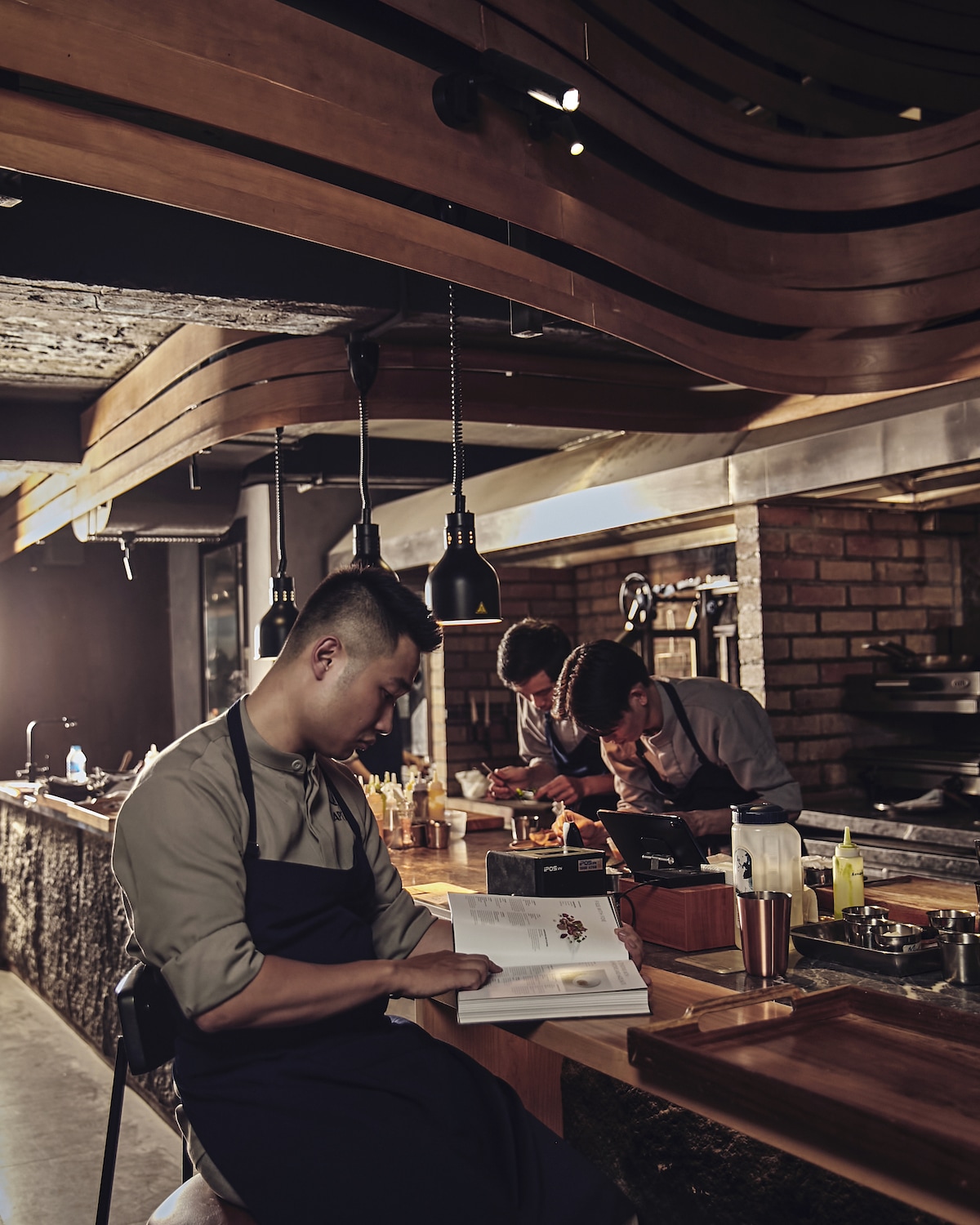
If I came to Cologne or Istanbul, which one restaurant (besides your own) would you take me to to understand the best of your cuisine there?
Yusuf Kizilirmak: I love modern Turkish cuisine. There’s one restaurant called Mikla which has been on The World’s 50 Best Restaurant list since 2015. Then there’s Murver. They’re also both in the Michelin Guide this year.
Julia Komp: I’m not so much a fan of German cuisine. I would prefer to go to places to try different flavors. So places where we can order small dishes and share. In Cologne, I would take you to HENNE.Weinbar. It’s a bistro-style restaurant with lots of tapas-style sharing plates to try out with friends.
Quang Dung: I haven’t been to either Cologne or Istanbul. I feel that taste is subjective – three different people would take you to three different places in any city. So, I’d trust your taste, Julia and Yusuf, completely and follow along. And here? I’d take you two home for my mom’s cooking. She makes a great sandworm omelet, chả rươi. And crab spring rolls.
Finally, what’s in your fridge at home?
Julia Komp: Breakfast. Cold cuts and cheese. There’s always cheese. I love cheese. I have salad and tomatoes. And fresh vegetables. And I have bottles – beer, wine and water.
Yusuf Kizilirmak: I have a four-year-old daughter. She asked me to make breakfast. And I used a kind of cured cheese – a lor cheese – that comes from some villages and is hard to find, with egg and tomatoes. That cheese is always in my fridge. And right now you can’t find cucumbers, or many vegetables in my fridge. Even if I tried to buy them, my wife would stop me! That’s because they’re not in season. If it’s not in season, she wouldn’t let me buy it.
Quang Dung: In mine, the most surprising thing would probably be the mise en place boxes you see at Chapter. Inside, I store food that needs a final turn to be complete – some beef to throw quickly into a wok. There’s always pork fat in there too. And there’s always vegetables. And a large bar of Toblerone chocolate!
Well, thanks for your time, Julia and Yusuf. It was a great chance to talk food with you both. I’m looking forward to seeing you, and Tim Goddard, At Six Senses Ninh Van Bay’s Culinary Sensation – International Culinary Week.
I’m looking forward to use serving the finest flavors and the prettiest plates of food. I feel like the food that we’ll make will not be 100% like we would make in Hanoi, or Istanbul or Cologne. It will be our interpretation of our cuisine as it appears at Six Senses.
For chefs, food is never ingredients and recipes put together and done. Food represents moments. Where we are physically and mentally. I know all the chefs will be on their toes, making decisions, tweaking things and being alive in the moment. We might find something in Nha Trang. Or in the Six Senses Ninh Van Bay garden that we hadn’t expected. And we’ll use it because it feels right…
Culinary Sensation – International Culinary Week begins on Monday, February 27, 2023 and features a plant-based six-hands dinner on Tuesday, February 28, and the week includes market visits, a Turkish masterclass, a plant-based cooking class and more.



